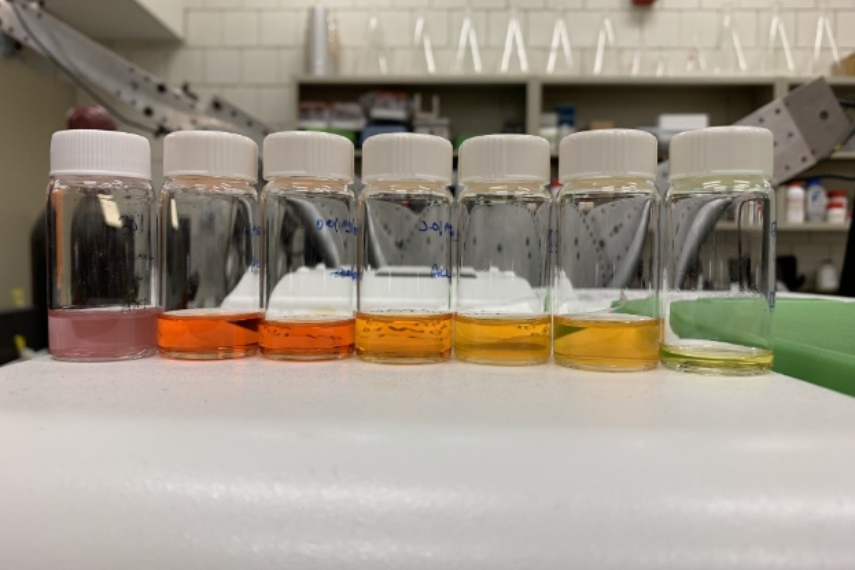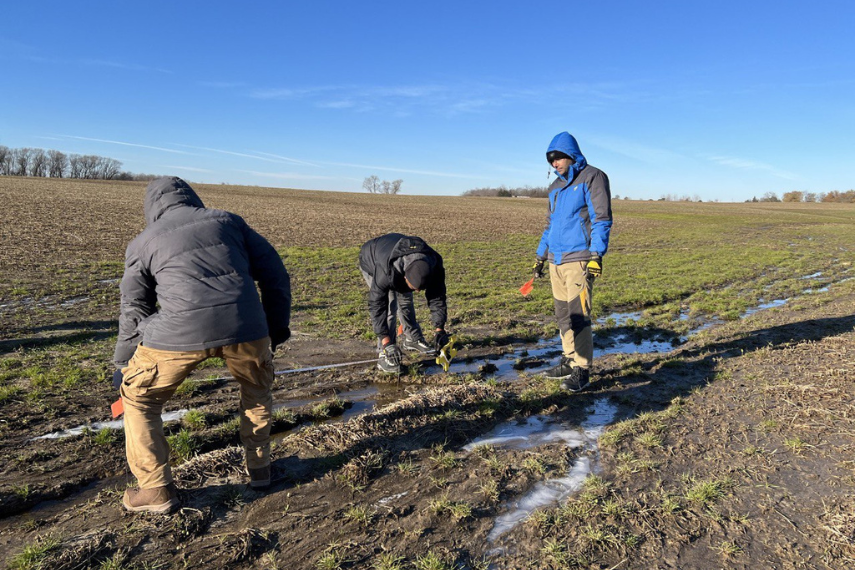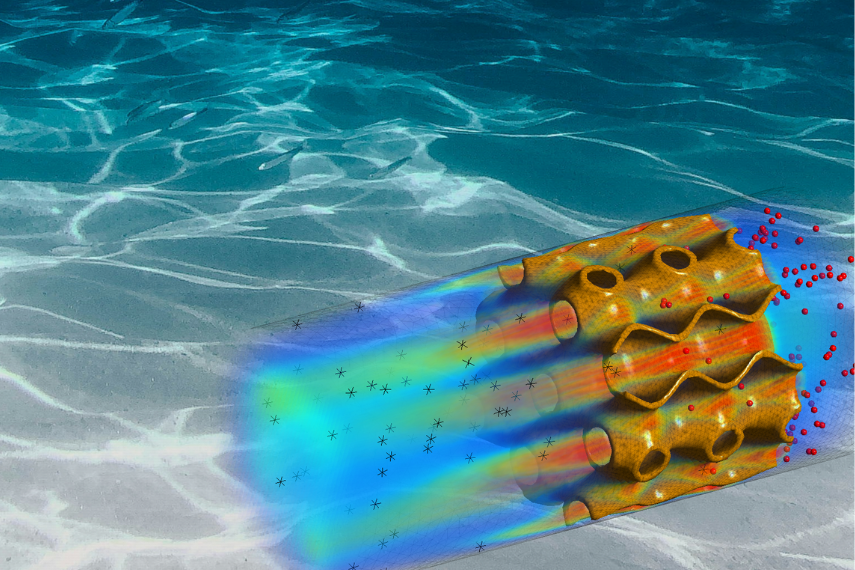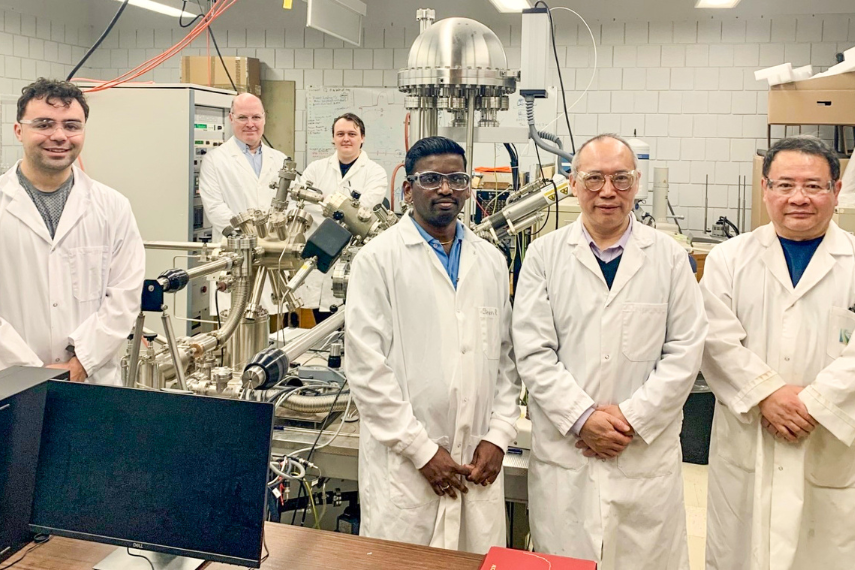
Natural Nanomaterial to Improve Bioactive Solubility
The solubility of a “water-fearing” compound improves with the help of a natural nanomaterial in the Dutcher lab.

The solubility of a “water-fearing” compound improves with the help of a natural nanomaterial in the Dutcher lab.

Researchers at the University of Guelph explore modeling of sweet corn-derived dendrimers for advanced medical applications.

U of G professor introduces a simplified method for solving resonantly forced linear ODEs.

Researchers pioneer novel approach for efficient detection and mitigation strategies for soil erosion.

Mathematics researchers using quantum communication to help boost data protections.

Dr. Emily Chiang and Dr. Rafael Santos are pioneering the future of clean water with their innovative research in water disinfection.

A new catalyst used in plastic waste conversion enhances production of valuable hydrocarbons.

Chemistry and physics researchers are improving the production of clean hydrogen fuel from water

Dr. Paul Garrett and his team from the Physics Department are working on Detector Array for Energy Measurements of Neutrons.

The intricate dance of complexity: mountain pine beetle outbreaks in British Columbia’s forests call for innovative fire occurrence models.